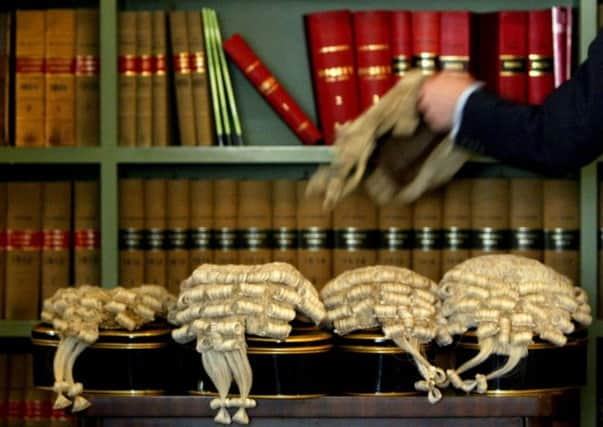The Bar must ensure access to justice for all


We are blessed to live today, in Scotland, in a tolerant, open society in which the institutions of the state are benign. But we take these things for granted at our peril. If we are to maintain the rule of law in Scotland, we must from time to time articulate what that means, why it matters, and how it may be kept secure.
The core of the rule of law is to secure that we do not live in the arbitrary world of Kafka’s Trial. But our aspiration should be more than that – to live in a society which really is ordered in accordance with the law – in which people can live their own lives, and businesses plan their own affairs, according to the law, and in which they may vindicate their legal rights when those are infringed.
Advertisement
Hide AdAdvertisement
Hide AdWe must therefore be concerned about the availability in and throughout Scotland of skilled legal advice, about the availability in Scotland and to all the people of Scotland of high-quality legal representation, and about access to justice and the effectiveness of justice.
Unless there are skilled lawyers available to give advice to clients about their rights, access to the courts would be of limited value. Justice would fail simply by reason of ignorance. And where a claim has been brought before the courts, justice is liable to miscarry if litigants do not have good quality legal representation. In the final analysis, defence by an independent advocate is a basic bulwark against arbitrariness and injustice; and without skilled and effective representation there cannot be a fair trial.
The Faculty of Advocates is Scotland’s independent bar. It draws on a long tradition of commitment to excellence, to scholarship and learning, to the noblest ideals of professional conduct and, above all, to justice for all in our society. Advocacy is a specialist professional skill, and the Faculty has been at the forefront of modern advocacy skills training. The practice of professional advocacy imposes specific ethical demands, and the Faculty supports practitioners so that they can live up to the high ethical standards which it expects in a sometimes stressful and often difficult job.
The existence of the independent bar secures that we have in Scotland a cohort of skilled advocates, with a wide range of skills and experience. It secures that every one of those advocates is available to anyone who may require advice or representation. It secures that solicitors may call on specialist expertise, or practical skills, as they require them, to supplement and enhance the service which they provide to their clients. The very existence of the bar therefore promotes access to justice, and the quality of justice, throughout Scotland.
If we accept that advocacy is a specialist skill, and if we believe that the rule of law demands that accused persons and litigants deserve skilled representation, then we have an obligation to seek, so far as we can, to enable accused persons and litigants to secure the skills of advocates whenever and wherever they require them.
If there are barriers which are liable to prevent this, then we should seek to remove them. One barrier, which the current debate about court reform has thrown into sharp focus, is the rule relating to expenses, which discourages the instruction of counsel in the sheriff court unless the case is one in which the court itself has granted or is likely to grant sanction for the instruction of counsel. It is a rule which has, so far as I am aware, no counterpart in the other jurisdictions of these islands.
It reflects a historic, but outmoded view, that the Faculty of Advocates is only a Supreme Court bar, when the true constitutional role and responsibility of the bar is to secure that the specialist skills of counsel are available to all the people of Scotland and to serve the administration of justice in all the courts of Scotland.
If we believe that – and I do – then we should think constructively and creatively about this issue. We should seek to design a system which opens access to the specialist skills of counsel at all levels of our court system, and which puts the litigant and the litigant’s interest in effective representation first.
Advertisement
Hide AdAdvertisement
Hide AdLawyers and the legal system exist to serve the people of Scotland, and that is what the Faculty is determined to do.
• James Wolffe QC is Dean of the Faculty of Advocates. This is an abridged version of the lecture, “The twenty-first century bar: what is it for?” The full lecture can be found at http://www.advocates.org.uk/
SEE ALSO